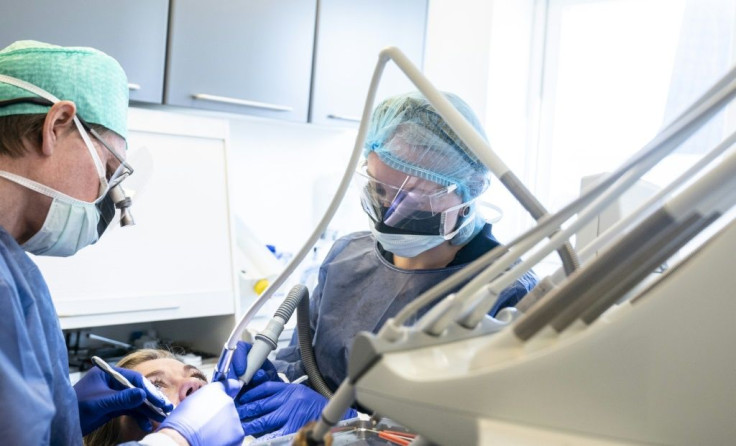WHO Urges Public To Postpone Routine Dental Checkups During Pandmeic Until Risk Is Known

KEY POINTS
- SARS-CoV-2 spreads between people via small droplets from the nose or mouth
- Dental procedures involve face-to-face communication and exposure to body fluids
- The WHO urges people to postpone all dental procedures unless it is an emergency
As people return to work in areas where the COVID-19 pandemic is easing, the World Health Organization (WHO) has urged the public to postpone routine dental visits until the risk from medical procedures in close contacts were known better. The new guidance also said that exceptions should be made for urgent care and emergencies.
There isn’t any evidence to claim the spread of coronavirus at dental clinics. The WHO called for further research into common healthcare procedures that produce tiny floating particles that could cause an infection if inhaled, reported Reuters.
According to WHO’s new guidance, the following procedures produce tiny floating infectious air particles:
- Three-way air/water spray
- Ultrasonic cleaning to get rid of deposits from tooth surfaces
- Polishing
"WHO guidance recommends in case of community transmission to give priority to urgent or emergency oral cases, to avoid or minimize procedures that may generate an aerosol, prioritize a set of clinical interventions that are performed using an instrument and of course to delay routine non-essential oral health care," Benoit Varenne, a WHO dental officer, said at a press conference in Geneva.
He said the risks of the novel coronavirus being spread via aerosol, or airborne particles, is questionable and calls for further research.
"Their procedures involve face-to-face communication and frequent exposure to saliva, blood, and other body fluids and handling sharp instruments. Consequently, they are at high risk of being infected with SARS-CoV-2 or passing the infection to patients," The Hill cited the new guidance.
Last month, the global health body released general guidelines on COVID-19 transmission which did acknowledge some reports of airborne transmission but didn’t confirm that the new virus spreads through air.
The latest WHO guidance highlighted that dental facilities should be equipped with adequate ventilation to lower the risk of coronavirus disease outbreak in closed settings.
"We think that the most pressing issue is related to the availability of essential personal protective equipment, PPE, for all health care personnel undertaking or assisting in the clinical procedures," Varenne said.
A study published this week pointed out that commercially available mouthwashes can be used to prevent COVID-19 spread during dental procedures.
© Copyright IBTimes 2025. All rights reserved.






















